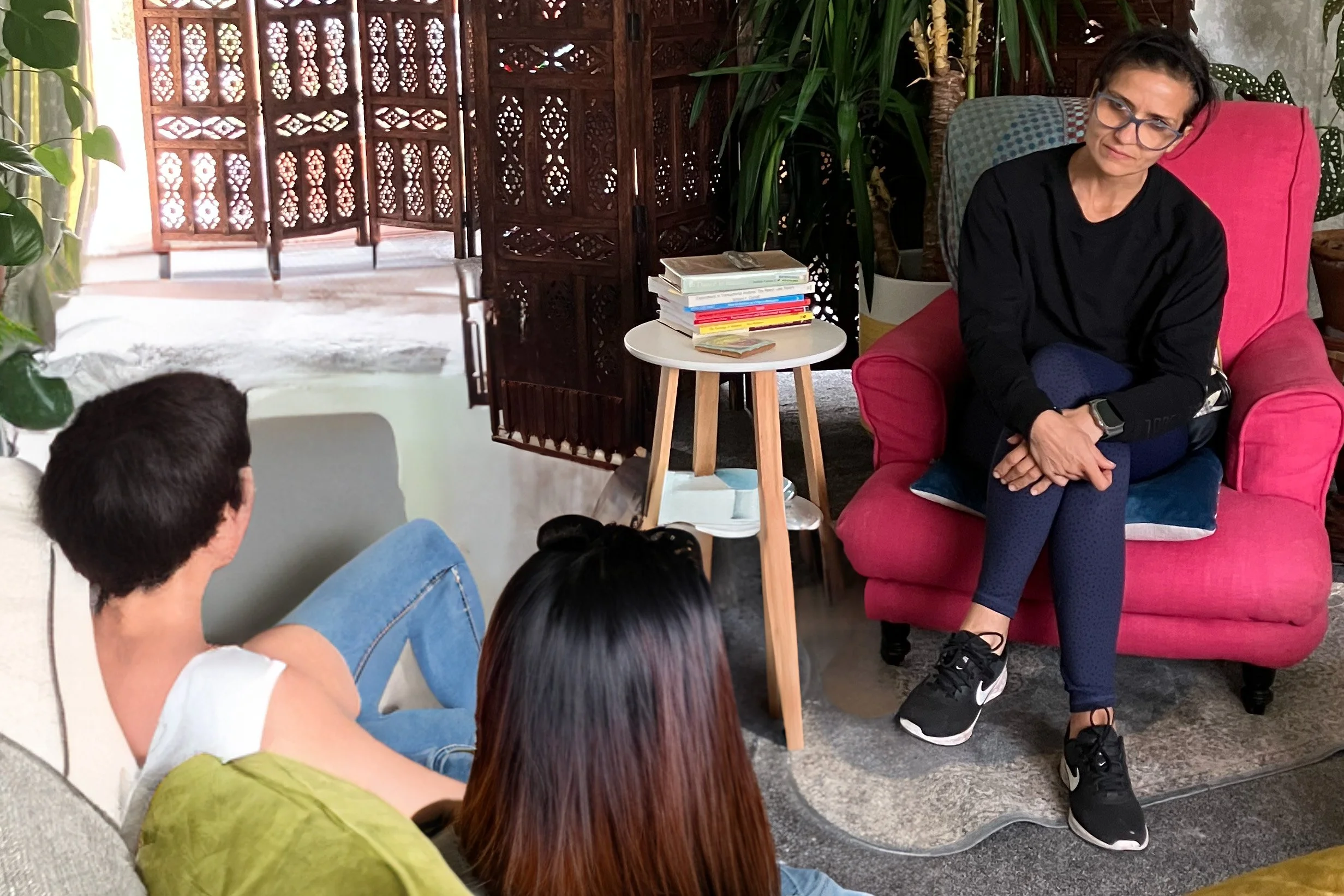Couples Therapy
Couples therapy is a significant part of my clinical practice. Utilising TA, I aim to foster open communication, identify and resolve underlying conflicts, and strengthen the bonds between you and your partner. Whether you're facing specific challenges or seeking to deepen your relationship, my intention is to provide a confidential and compassionate setting to explore and enhance your partnership. I welcome and work with people across the full spectrum of race, gender and sexual orientations, including LGBTQIA+, and my practice affirms neurodiversity.

The Therapeutic Process for Couples
The initial sessions are exploratory, aimed at establishing a shared contract for realistic goals. This contract serves as a roadmap, focusing on both what you aim to achieve (behavioural goals) and how (process). Flexibility is key, as your goals may evolve during therapy. The challenge lies in staying focused on these goals while addressing immediate emotional triggers and reactions.
My role as Therapist
My role throughout will be committed to understanding how you function as a couple, promoting your strengths and supporting your challenges. I will act as a facilitator: a 'mirror' for you to reflect on the dynamic I observe between you. I can also offer suggestions that may lead to better contact between you as a couple.
The format in which I work is fluid to account for the organic nature of the therapeutic process. My job is not to tell you what to do or how to live your lives. This is a pro-active process and success depends on the willingness of each of you to be open to what comes up. I will help you understand your relational patterns and create new options for meaningful connection.
Patterns of relating usually begin in childhood and are a response to family dynamics, messages and structures. As your couples therapist I will want to explore your internal (intrapsychic) worlds. These worlds underpin the ‘interlocking’ process between you. This is something that needs to be respected through mutual exploration and understanding.
“My job is not to tell you what to do or how to live your lives. I will help you understand your relational patterns and create new options for meaningful connection.”
Format for Sessions
When you arrive for a session, I invite you both- independently- to check in. This is so you can briefly voice any reflections or observations about yourself, the therapeutic process, your relationship or each other as a result of the previous session.
Next, if you had agreed to try any of the skills I suggested to you (a behavioural contract perhaps, or a listening/reflecting/fun exercise), I will invite you both to share how those went. After that, we can agree on what we are going to focus on for the rest of the session.
Towards the close of the session, I will ask you to reflect back on what has come up for you (emotionally, cognitively, bodily) during the session, and what has felt particularly helpful (or not).

